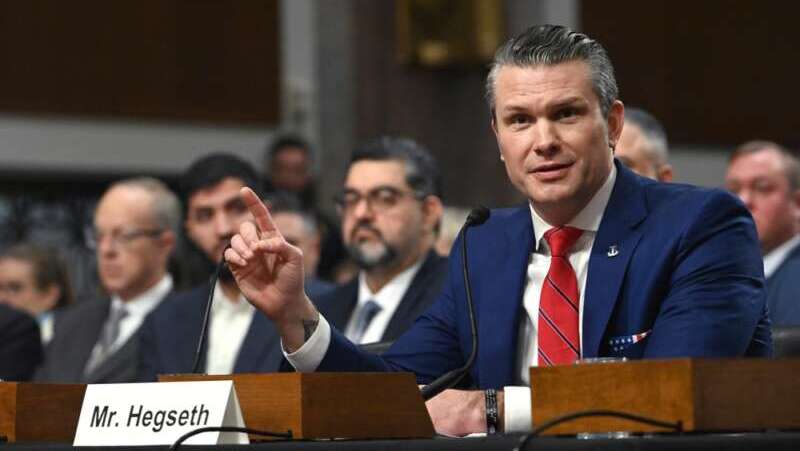
Defense Secretary Pete Hegseth ran into significant bipartisan static today during a House Appropriations subcommittee hearing over the Trump administration’s failure to thus far submit a complete proposal for Defense Department (DoD) spending in fiscal year (FY) 2026 even as the panel’s defense subcommittee prepares to mark up a spending bill.
Rep. Betty McCollum, D-Minn., ranking member of the subcommittee, slammed Hegseth for not providing full details on the DoD budget request, which she said was due in February.
“This has national security ramifications, [and] we do not have the critical information, the granular details on the DoD programs that we need to make in order to be effective and efficient with our decisions,” Rep. McCollum said.
“The president proposes, Congress disposes, and that’s how our government works,” she told the Defense secretary.
That sentiment was shared among top subcommittee Republicans who voiced similar concerns, and warned that projects such as President Donald Trump’s $175 billion Golden Dome missile defense system would receive plenty of congressional scrutiny.
“I want to emphasize the importance of congressional oversight, and again, I’m committed to working with Department of Defense to ensure that our national security objectives are met – however, we also have a duty to hold them accountable for … performance,” said Rep. Tom Cole, R-Okla., chairman of the full appropriations committee.
Trump has proposed that DoD receive a total of $1 trillion in defense spending – a steep increase compared to the current spending level of around $800 billion.
Some of the details that the Trump administration and Hegseth have shared about the budget include spending to field emerging technologies; make a down payment on the Golden Dome project; modernize nuclear forces; and increase funding for autonomous systems, drones, and hypersonic tech.
When pressed for specifics by Rep. Joe Morelle, R-N.Y on a $25 billion down payment for the Golden Dome project, Hegseth responded that “there are many specifics that are not fitting for this setting,” and said he would provide them to the lawmakers at their request.
“It includes existing capabilities that can be fielded rapidly, as President Trump has made the case, we need this now,” added Hegseth.
Another point of contention for Democrats is funding being funneled into the DoD’s deployment of thousands of National Guard and Marine troops to Los Angeles amid protests against deportation raids. Bryn Woollacott MacDonnell, Hegseth’s acting comptroller, told lawmakers that troop deployment was so far costing the agency $134 million.
Hegseth suggested that the deployment of troops within the United States would continue to grow, saying that “we’re entering another phase, especially under President Trump with his focus on the homeland, where the National Guard and Reserves become a critical component of how we secure that homeland.”
Hegseth also defended the department’s decision to significantly downsize the Office of the Director, Operational Test and Evaluation (DOT&E), which tests new technologies, as a “reflection of the overall approach we take in the department” to improve efficiency.
He said that the decision to get rid of DOT&E was coordinated with the Department of Government Efficiency, and called the office “bloated.”
